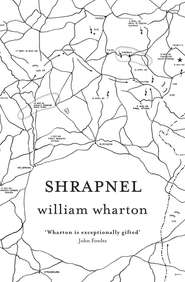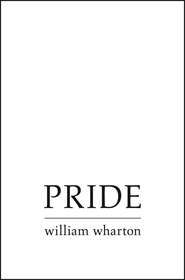По всем вопросам обращайтесь на: info@litportal.ru
(©) 2003-2024.
✖
A Midnight Clear
Настройки чтения
Размер шрифта
Высота строк
Поля
I tie wire to the handle of the window-door with enough slack to reach the central phone, then start rolling it up the hill. The smart way would be to unroll wire from the top down but I’m not thinking well. I struggle up the slippery hill with the wire reel, holding on to trees to keep from sliding on down into the back of the chateau. I finally work myself to where I’ve marked the spot, and stop for breath.
Below Stan and Mel are hooking up the other phone. While I’m watching, Mel cranks the handle and puts the receiver to his ear; it must be OK because Stan starts climbing uphill toward me without heading to the château.
I tie my wire to a tree; sit down and wait for him. I pull the twenty-power scope from my field jacket pocket and scan the hills around for a quick look. I don’t see anything particularly suspicious: no smoke, no sign of movement or glints on metal. Stan comes puffing up beside me.
‘Phone’s working fine down there. Miller says he’s got the radio tuned in and warming up, too.’
We hunt for a good place to dig the hole. We want a spot showing the fewest roots. But with pines all around like this, there’ll be roots, no matter what. Stan isn’t enthusiastic about digging but I stick it out. I’m not thinking so much about protection from bullets or shrapnel as from wind and cold. At night, two guys can keep warmer in a hole. One can sit down in while the other watches. Nights here are ungodly long this time of year.
I leave the scope with Shutzer and tell him to take a look around every fifteen minutes or so; give him a rest from digging. I scramble on down the hill.
Miller’s started hooking the wire to the other phone while I begin the crappy army call business on the radio. ‘Able one to Able four, over.’ I get Leary, one of the few radio people at regiment who’re even half human. I forgot communications when I listed the nothings in regimental headquarters company. They’re so nothing they’re easy to forget.
Leary says he’ll get our message to Ware. I say we’ve occupied the château and are digging in posts. That sounds military enough. I also schedule a call back at twenty-two-hundred; that’s ten in the evening, army talk.
Mother says he’s ready to cook lunch if we’ll go hunt wood. He wants to light the fireplace, warm up the room and cook over it. We have two primus stoves with us but Mother is wound up to make a real cooking scene. There’s a kitchen opening onto the back wall along with a pantry, but it’s cold and there are no pots or pans. Wilkins says it’ll be better cooking out here in front where we’ll sleep.
I don’t know what to say. If we have a fire with smoke coming out the high chimney over the château, it’ll be no secret we’re here. At that point we’re distinctly not a recon patrol; we’re some kind of occupying force. Then again, we’ll freeze our asses off at night if we don’t have heat.
Father Mundy and I go around in back of the château. In the space between the château walls and the hill there’s a woodshed and a stable for two or three horses. We break open the door to the woodshed but there’s no wood. We go into the stable. There are some armfuls of dry hay still in the loft and we pry loose a few good-sized, worn boards from the stalls. If we do run a fire, wood’s going to be a problem. The trees and everything on the ground around here are wet and impossible to burn. Even if we could burn it, there’d be regular clouds of smoke. The Germans will think we’ve got Indians out here making signals.
When we get back, Mother has a little flame going from D ration boxes. We add the hay and some smaller pieces of wood. But the fireplace isn’t drawing; the smoke’s pouring into the room and drifting to the ceiling. Miller looks up the flue and finds it’s been plastered closed. He uses the butt of his rifle and knocks out some plaster; a few bricks fall, then the smoke starts going up fine. I go outside to see how much comes out. There’s a twisting snake of pale blue. It’s bad but not bad as I expected. It’s a chance we’ll take.
D rations have assorted goodies such as number ten cans of jam or fruit cocktail, so Mother whips up a tasty lunch. We finish off with coffee and I’m praying my stomach will handle it. For some reason, I’m not scared as I should be; maybe having a fire burning and being inside help.
Mundy finds a hand-pumped well beside the château; he and Miller prime it. They bring water back in worn wooden buckets and it looks clear. We might even be able to keep our mess kits clean for a change. This could help my insides stay where they belong.
I’m trying to work out a fair guard schedule. Gordon, Shutzer, Miller and Mundy will want time off together in the daytime so they can play their crazy, four-man, cardless duplicate bridge. Also, I don’t want anybody getting stuck with straight-six overlapping day and night shifts. It’s almost as complicated’s making their handmade bridge hands; that’s another thing needs doing before tomorrow. Maybe Mother will help; he’s better at it than I am anyway and it’ll take his mind off things.
Shutzer and Gordon come in. Mother’s kept chow hot, dishes them out some, then leaves for the bridge post while Father Mundy pulls the one up top. This squad practically runs itself; anybody trying to lead it only gets in the way. I probably don’t even need to make any guard schedule.
Miller’s also found some empty wine bottles and is cutting up feed sacks from the stable into strips with his bayonet. He’s making flambeaux, using gasoline from a jerry can on his jeep. That way, we’ll have light tonight.
It’ll get dark before five, so there’ll be one more turn before night double guard starts. We’ll stick it out for now; then tomorrow, if nothing’s happened, we’ll drop to one post. Nobody said we have to defend this place, just keep an eye on the road and bridge.
I crack out new grenades and issue two extras all around; we’re each carrying bandoliers, plus the clips on our belts. Our fifty caliber is loaded with armor piercing, every sixth shell tracer. We can’t do anything against a tank, even with AP, but maybe it’ll slow down a weapons or troop carrier. Hell, nobody’ll be rolling through here with anything like that; I should relax.
Miller comes in with a ring of rusty keys. He found them hanging on a hook inside the well when he took off the cover checking to see if it looked polluted. There’re about twenty keys, all huge and ornate.
Gordon lights one of the flambeaux. He, Shutzer, Miller and I go on an exploration. We’re finally doing some recon; Major Love would be proud of us.
We find stairs to the cellar outside on the back wall and work our way down winding eroded steps to a dirt floor. It’s warmer here but humid. The ceilings are arched in stone and festooned with dirt-heavy cobwebs. If it gets really cold, we could live down here, but we’ve had enough sleeping in cellars.
I’m looking for another entrance from inside to use in case somebody comes charging through the front door up-stairs, but there are only three small rooms, a dead end, and nothing but the outside stairwell we came down.
Miller’s working out the permutations and probabilities for twenty keys and three doors; finally he gets them open. In one, there’re eight bottles of wine. From the straw and empty racks it looks as if somebody’s already ransacked most of it. In another cellar there are two crates of canned sardines. The last cellar is empty except for rusty old tools and some broken chairs.
We gather up the wine and sardines; they’ll give some zest to the D rations. Miller hauls along three of the broken chairs for burning. We stash the cans of sardines and bottles of wine beside the hearth; Miller cracks the chairs and throws some rungs on our fire.
Next we climb a stairway on the far wall from our fireplace. It curves upward to a landing, then turns back along the rear wall. We open a tall, wooden door onto a hall running the length of the château, almost like a hotel hallway. Miller’s fooling with his keys again. He’s marked off the cellar keys so he’s down to seventeen. It turns out one key opens all hall doors.
The first room has three walls lined with books, including a recessed spot for a globe of the world. Most of Europe on it is German. The floor is carpeted and there’s oak wainscoting up about three feet. I pull aside the curtains on the fourth wall, open a window and push out the shutter. I’m looking down from the front of our château and see Mother by the bridge.
Maybe I should make the upper guard post in here; be a hell of a lot more comfortable. But somehow it seems wrong, turning a beautiful room like this into a guard post. Wilkins probably wouldn’t let me anyway. Also, if anything happened, whoever was up here would be trapped.
I go around looking at the books. They’re all French or German, no English. I’m not exactly sure which country we’re in; could be Belgium, Luxembourg, France or even Germany; we’re at a place where they more or less come together. I don’t know what time it is, what day or what country. I’m not even sure of my own name. Next thing they’ll be making me a general.
The other rooms are bedrooms, five of them. There are furniture marks on the floors but the rooms are empty. The biggest room has full-length mirrors along one wall, the wall away from the windows. God, we’re ugly; dirty, gangling, baggy; shuffling in a hunching crouch like animals. We’re walking, talking Bill Mauldin cartoons or van Gogh potato eaters. We look as if we’re holding things in, at the same time, keeping things out; a permanent state of negative expectation.
I stop in front of one mirror, straighten, try to recognize myself; who is this, who am I?
Gordon’s up close to another mirror, inspecting his teeth. Miller and Shutzer are laughing, posing; pointing at each other. Shutzer gives himself the finger. I don’t think we’ve been seeing ourselves the way we look in these mirrors; it’s hard to accept. We look like the enemy.
At the end of the hallway are two doors. One opens onto a gigantic bathroom with more mirrors along the walls. In the center of the room is a strange-looking copper bathtub shaped like a giant shoe. It looks something like the house for the old lady who didn’t know what to do. It also looks like the kind of bathtub Claudette Colbert would use to take a bath with lots of bubbles, steam and Clark Gable. She knew what to do.
Miller wants to make a bucket chain, haul water from the well and take a bath. But it’s so cold there’s frost on the insides of windows and the mirrors are steaming up with our breath and the heat of our bodies. There are closets behind the mirrors, all empty; and in one corner is a sink without water. There’s also something like a footbath, which I now know was a bidet.
We go out and open the other door in the hall. It leads onto a narrow turning staircase. We tromp up in a row. At top is a small door; Miller gets it third try.
The attic’s divided into small rooms and these rooms are stuffed full with furniture. Things are piled King Tut tomb-style, helter-skelter. It’s fantastic: musical instruments, rugs, satin-covered chairs, beds, paintings in big gilt frames. We poke our way around. Wilkins is going to go ape exploring all this. He’ll probably be cataloguing the whole shootin’ match before he’s finished.
But we have some needs right now. We carry down four mattresses and satin quilted covers. The second squad of the regimental I and R platoon, Umpty-eleventh Infantry, Eighty-tenth Division, will be living in luxury for a few days.
Downstairs, we square our mattresses around the fire and spread the quilts over them. We put fart sacks on top. We’ll always have at least two on guard so this should work fine. I spread out on one and enjoy the softness; it’s been a long time since I’ve slept in an honest-to-God bed.
Shutzer, our kosher gourmet, hungering for the smell of fish, opens a sardine can with his bayonet. Miller, the man who has everything, even a corkscrew, works the cork from a bottle of wine. This could well be the coup de grâce for my stomach, perhaps my entire digestive system, top to bottom. We pass the wine and sardines around; wine’s sour but cold, sardines float in thick oil; some writing on the can’s in German. Maybe this is the German secret weapon; maybe we’ll all wind up in some nice American field hospital with a gaggle of Purple Hearts, victimized by the terrible Huns and their secret weapon, poisoned sardines.
I sit there trying to work out bridge hands for the maniacs. Soon as I’m on duty, it’ll be Gordon, Shutzer, Wilkins and Mundy locked in mortal combat. Concocting hands is more fun than playing. Sometimes I watch and count tricks. For me the game is guessing what the contract will be and if the hands will make. Each day, I’m getting better at playing this inside-out, bass-ackwards kind of bridge. The secret is making the hands as Machiavellian as possible.
Before that Saar patrol, the squad usually played ordinary duplicate bridge. Once a week at Shelby, we’d nominate a team to play against the first squad, Edwards’s squad. We always won. If you don’t count Wilkins, Morrie and Gordon were our best players. At Shelby, Wilkins would never play; now he only plays once in a while to make an emergency foursome. Morrie, Fred and Jim were regulars, too. Max Lewis would play sometimes. Now, when the maniacs want a really good game, they beg Wilkins to sit in; but poor Mundy’s stuck with it most of the time. He never played before he joined the squad and he’ll never be any good. He’s not devious at all, and doesn’t care enough about winning. It drives Shutzer mad.
When we lost half the squad, we also lost our only decks of cards. They were on Morrie, and he was back with the medics before he could pass them to any of us. We weren’t thinking much about bridge right then.
He died in the field hospital. With his right hand gone and his face the way it was, I don’t think he tried hard to stay on. I wouldn’t. Gordon and I wrapped him; it looked as if his eyes were empty; the side of his head was spongy soft.
We’re continually writing home for playing cards, candles, pencils and dictionaries but not one of us has gotten any. We get warm, hand-knit socks, too thick for our boots, or boxes of cookies mashed into crumbs. Corrollo used to get hot Italian peperone sausages and hard Italian cookies uncrushed. Corrollo also would steal sausage off dead Germans. He said it was good but not so good as he got from home.
Father Mundy’s mother packs each of her cookies in a separate wrapping of waxed paper, then stuffs shredded newspaper tight around them. She’s been sending packages to relatives in Ireland for years, so she knows how.
Father considers those cookies an act of love. They are. He’s the one guy we never hound for seconds but he passes them out anyway. It’s almost as if he’s giving communion; one at a time, carefully unwrapped and handed to you directly. They’re usually tollhouse, with lumps of real chocolate and deep in butter. One of Mundy’s mom’s cookies is something to be eaten slowly with much concentration, almost worth reconverting for.
Вы ознакомились с фрагментом книги.
Приобретайте полный текст книги у нашего партнера:
Приобретайте полный текст книги у нашего партнера:











